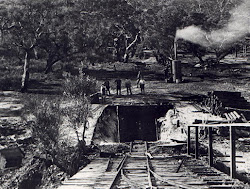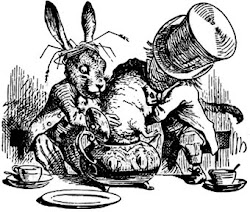Who is Joseph-Charles Guité?
Why does someone need immunity if they've done nothing wrong? In fact, this is a rather interesting use of immunity - very reminiscent of the agreement to not enter evidence in the Clinton Impeachment Trial. Mr.Guité, below, agreed to testify in front of the Gomery Commission provided he wasn't asked on cross about previous testimony - under oath - that would contradict his present testimony.
Who is Joseph-Charles Guité? The Executive Director, CCSB, PWGSC - the entity at the center of the storm.
Was this other testimony long ago and isolated? No. In fact, it continues at least as recently as February 2004 in what seems to be a parliamentary compliment to the Gomery Commission. Also, it has the distinct flavor of a man screaming, "if I go down, I will take all of you with me!"
Back to our Gomery ruling ...
"This morning counsel for Mr. Guité presents a motion by which he reasserts his pretension that the transcription of his client's testimony before the Public Accounts Committee should not be used or referred to in any way during his cross-examination. In addition to the argument based upon parliamentary privilege, he invokes certain promises made to him prior to testifying to the effect that his testimony would not be used in other proceedings. These promises appear to have been an important consideration in the deliberations of the Committee of the House of Commons which recommended that no waiver be given. Mr. Guité asks that I issue an order accordingly, and maintain his objection to the use of any evidence previously given by him before the Public Accounts Committee.
Why would opposing counsel want to use the previous testimony? " ... wish to use the transcriptions as evidence of prior statements made by the witness which are, according to their pretensions, inconsistent with the testimony given before this Commission; in this way they propose to attack the credibility of the witness and the probative value of his testimony." Seems reasonable.
What is the legal basis for objecting? "The objection to any admission of the PAC transcripts is based on the parliamentary privilege of "free speech" which is part of the Constitution of Canada by virtue of the preamble and s. 18 of the Constitution Act, 1867 and s. 4 of the Parliament of Canada Act, R.S.C. 1985, c. P-1. Section 4 confirms the privileges of our Parliament and its members with reference to the privileges of the United Kingdom House of Commons as at Confederation, which then included the parliamentary freedom of speech guaranteed by Article 9 of the United Kingdom's 1689 Bill of Rights. Article 9 provides "That the Freedom of Speech, and Debates or Proceedings in Parliament, ought not to be impeached or questioned in any Court or Place out of Parliament." Oh man, you have to go back to the 1689 English Bill of Rights you know your argument is attenuated.
Is the 1689 reference secondary to other controlling authority? Appears not: "One of the difficulties I have in deciding whether to maintain or dismiss the objection is that there is no Canadian case directly dealing with the issue. I am referred, however, to jurisprudence in cases alleged to be persuasive originating in other countries which have, like Canada, inherited the Westminster form of parliamentary government and the protections afforded by the Bill of Rights of 1689." Ut-oh - juvenile death penalty deja vu all over again. He goes on to cite two New Zealand cases.
OK, New Zealand. But are we bound by that? "It should be noted that decisions of the Privy Council rendered in 1995 are not binding on Canadian courts, although of course its views as to the proper interpretation to be given to an English statute such as the Bill of Rights of 1689 should be given great weight." Um, no. But if it can dust off the 300 years from the English Bill of Rights ...
The flag turning in the wind: "Should I decide the objection by authorizing the use of the transcripts for the purposes of cross-examination, I would undoubtedly have the advantage of knowing to what extent Mr. Guité may have made declarations to the Public Accounts Committee which may be inconsistent with his testimony before the Commission, but this would be at the cost of the risk of provoking an application for judicial review of my decision and the possibility of a stay of the hearings of the Commission. This is, in my opinion, a much greater danger and disadvantage to the completion of my mandate than being deprived of the use of the transcripts." OK, timeliness is more important than being correct. Wow ...
The ruling: "For the time being, the objection is maintained and counsel are prohibited from asking Mr. Guité any question based upon an allegedly contradictory declaration made by him before the Public Accounts Committee of the House of Commons."
My, the still waters of the north country run deep.














Hey, you have a great blog here! I'm definitely going to bookmark you!
ReplyDeleteI have a Free site Free Article Search. It pretty much covers churchill sir winston leonard spencer british statesman soldier and author related stuff.
Come and check it out if you get time :-)